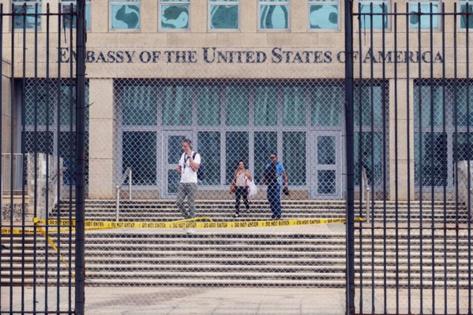US intelligence now split on possible 'Havana Syndrome' cause
Published in News & Features
Two of seven U.S. intelligence agencies broke with previous assessments that foreign adversaries were not to blame for so-far unexplained health incidents among government employees overseas that came to be known as “Havana Syndrome.”
The latest conclusions highlight the confusion that continues to surround the incidents, which were first reported in 2016. Diplomats and other staff reported headaches, dizziness and other debilitating effects, and one theory was that they were the result of an attack with a directed-sound weapon.
Most of the intelligence community “continues to assess that it is ‘very unlikely’ a foreign adversary is responsible for the events reported as possible anomalous health incidents,” as the agencies reported in March 2023, the agencies said in a new report issued Friday.
But two intelligence community agencies, which weren’t identified, now have shifted their positions based on their evaluation that certain nations are making progress in research and weapons development, according to a summary.
“One IC component judges there is a ‘roughly even chance’ a foreign actor has actually used a novel weapon or prototype device to harm a small, undetermined subset” of the U.S. government “personnel or dependents who reported medical symptoms or sensory phenomena,” the report disclosed.
A second agency gave a “roughly even chance” to the idea that a foreign actor had developed such a weapon, it said. It noted both agencies had low confidence in the judgments.
The five agencies that are sticking with the 2023 assessment judged “it is ‘very unlikely’ a foreign actor has used a novel weapon or prototype device” to harm Americans and their dependents.
The intelligence agencies and the White House issued statements that reflected the sensitivity of the issue. Some of those who reported debilitating symptoms from Havana Syndrome, and their supporters, have accused the government of downplaying their symptoms or suggesting they were psychosomatic.
The intelligence agencies said that all of the seven agencies studying the phenomenon “recognize that personnel and dependents experienced genuine, sometimes painful and traumatic, physical symptoms and sensory phenomena and honestly and sincerely reported those events.”
Sean Savett, a spokesman for the National Security Council, said in a statement that the new report reinforces the need for further investigation into the incidents. John Kirby, chief spokesman for the NSC, told reporters that the Biden administration would brief President-elect Donald Trump’s incoming administration on the issue.
The new report reflects the increased willingness to air disagreements within the secretive intelligence community — and sometimes publicly — as part of changes made after the erroneous reports in 2003 that Iraq had weapons of mass destruction.
_____
©2025 Bloomberg News. Visit at bloomberg.com. Distributed by Tribune Content Agency, LLC.







Comments